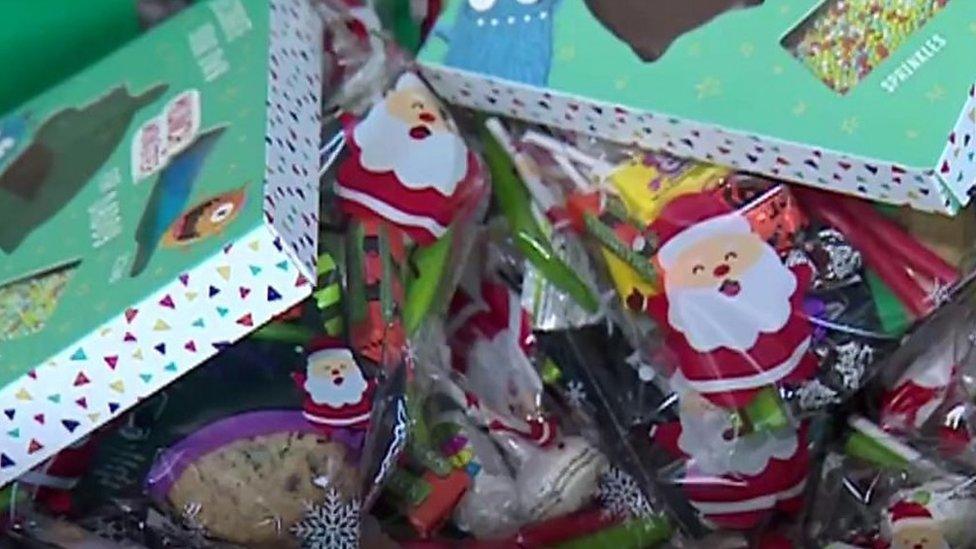Christmas food: Bristol chef's tips to reduce waste
- Published
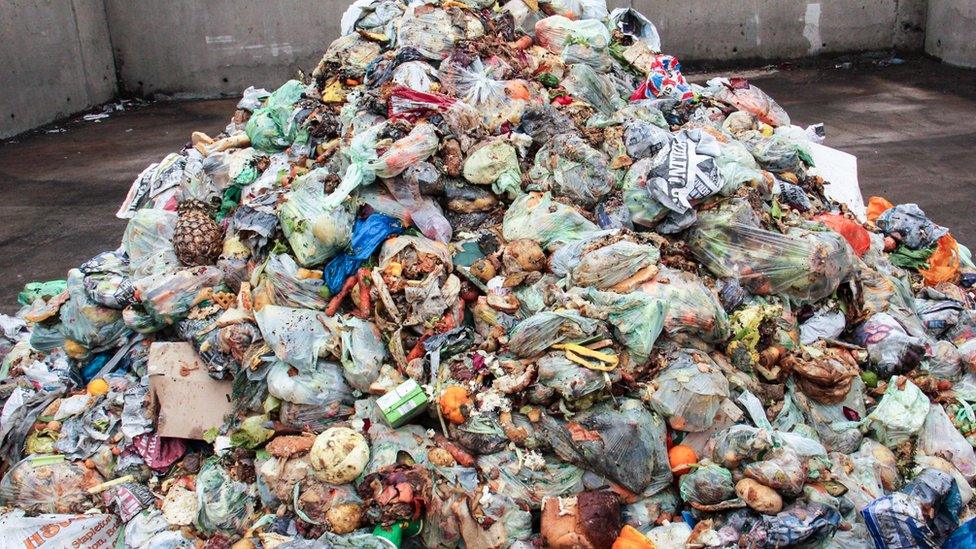
Bristol Waste says vast amounts of food waste are generated at Christmas
A chef is urging people to avoid food waste at Christmas by using smaller plates and making meals from leftovers.
Chef Shane Jordan is working with Bristol Bites Back Better, external to highlight ways to reduce waste over the Christmas and New Year period.
He also said due to Covid restrictions, people may "not properly adjust" their food shops to suit smaller gatherings.
Bristol Waste has said 15% more food was discarded in December 2019, the equivalent of 1,800 tonnes.
'Precious resources'
The waste company also said much of this was put into black bin bags rather than food bins.
"Christmas is a time when people often buy more than they need and with this year looking quite different, people might not properly adjust what food they buy to suit the smaller numbers celebrating," said Mr Jordan.
"With the changing situation for restaurants, with lockdown restrictions making it hard to plan, there is continued risk that there will be rising levels of surplus food.
"Whatever people do at home to reserve precious resources can, and will, help."
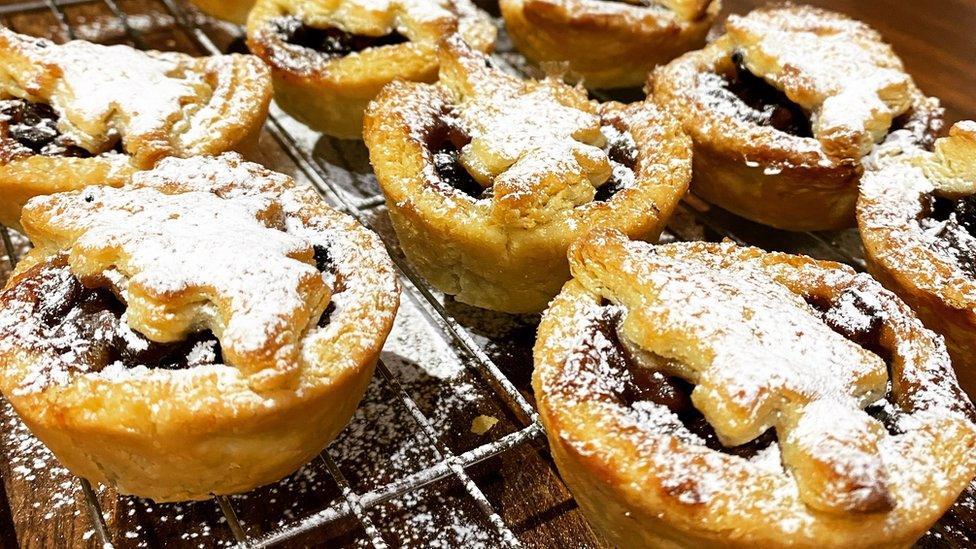
According to the government, millions of mince pies are thrown away every year
His tips for avoiding waste are:
Make a meal plan
Know the difference between 'best before' and 'use by' to avoid discarding food unnecessarily
Check your fridge settings. Food needs to be between 1-5 degrees for maximum freshness and longevity
Use smaller plates. Filling big plates which people can't finish leads to more waste
Get creative with your leftovers
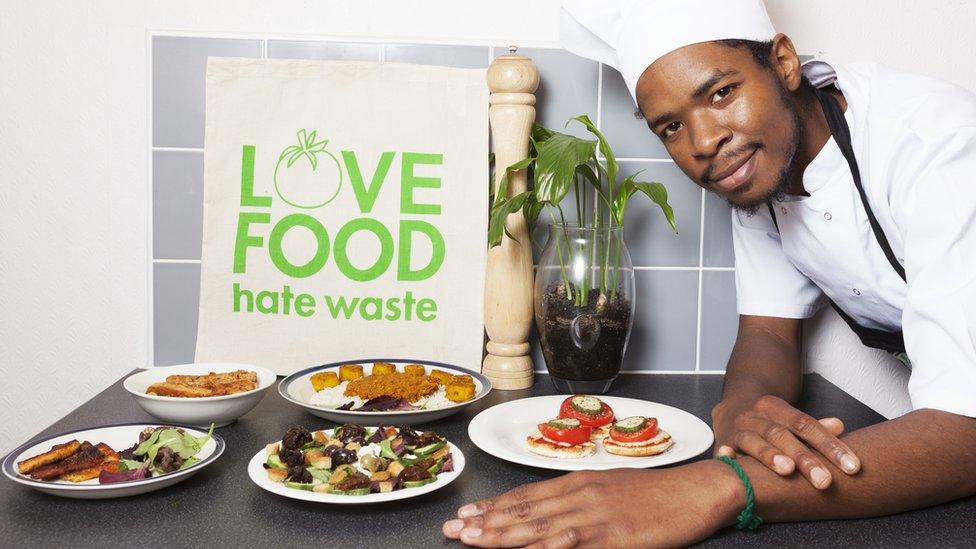
Bristol Bites Back Better ambassador Shane Jordan said Christmas is a time when people often buy more than they need
Head of innovation and sustainability at Bristol Waste, Gwen Frost, said Christmas always leads to a spike in food waste.
"When this gets put in the brown food caddy we can recycle that waste in to energy and fertilizer, but a shocking 20,000 tonnes of food gets thrown away in the black bin every year," she said.

Follow BBC West on Facebook, external, Twitter, external and Instagram, external. Send your story ideas to: bristol@bbc.co.uk , external
Related topics
- Published20 December 2020
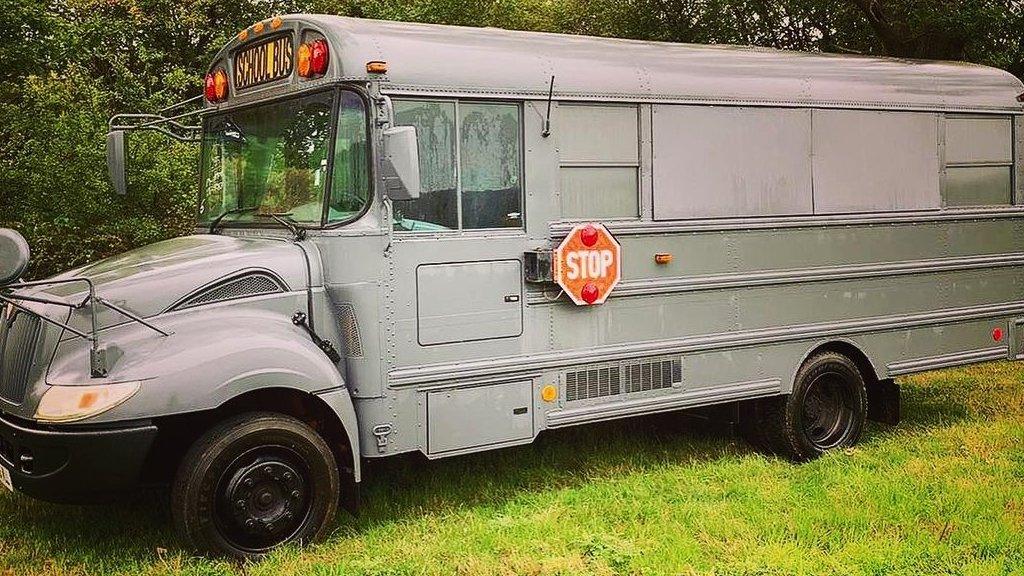
- Published18 December 2020

- Published6 December 2020
